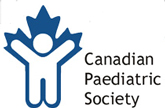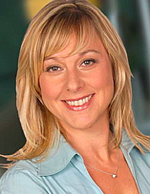
Children's aid notifies mom about boy's alleged sex assault, days after school incident
CTVNews.ca Staff, published Friday, November 4, 2016
A Mississauga mother is looking for answers after her seven-year-old son was allegedly sexually assaulted by another student at his school, and she wasn't made aware of the reported incident until the Children's Aid Society notified her days later.
The mother says the school didn't inform her of the incident, and she only heard about it from the Children's Aid Society days later.
However, the school board says that the principal of the school was following the law when he reported the incident to the CAS.
The alleged incident took place last week at Metropolitan Andrei Catholic School.
The mother, who can't be identified in order to protect her child's identity, says her seven-year-old son was sexually assaulted by a 10-year-old student at the school.
The mother alleges the 10-year-old "pulled down his pants, asked my son to pull down his pants, told my child they're going to have sex."
She added: "My son said no, and the other boy basically was really aggressive with him."
But the mother said school officials never told her anything about the incident.
The Dufferin-Peel Catholic District School Board told CTV Toronto that the school principal was made aware of the allegations last Friday and he immediately called the Children's Aid Society.
The mother of the seven-year-old told CTV Toronto she received a call from the Peel Children's Aid Society five days after the incident.
Now she is wondering why she didn't at least receive a courtesy call about the alleged incident.
"I'm a sole provider for my child," she told CTV Toronto. "How am I not aware that my child is being sexually assaulted in school?"
When contacted by CTV News, school board spokesperson Bruce Campbell says that the principal followed proper procedure in immediately contacting the Children's Aid Society.
"I think at the school level there's a bit of a surprise that the parents weren't advised a little bit earlier, but taking direction from CAS, we don't have contact with the parents," Campbell said in an interview with CTV Toronto.
Still, the mother of the seven-year-old child believes common sense demands that she should at least have received a phone call from the school.
"They're taking four, five, six days to let me know that this is happening, because it's under investigation?" she said. "That's unacceptable."
On Thursday, the mother was told the CAS file on her son's case was closed because it was classified as peer-on-peer interaction.
The CAS has offered counselling services for her son and for the other boy involved.
Peel police confirm the complaint was investigated but it was not considered criminal due to the age of the children involved.
A CAS worker told CTV Toronto that since the incident involves such young children, it wouldn't be as much of a priority than if it was an adult who had allegedly assaulted a child.
With files from CTV Toronto's John Musselman

Don't Spank - Canadian Paediatric Society
Effective discipline for children
Reaffirmed: February 1, 2014
Principal author(s)
P Nieman, S Shea; Canadian Paediatric Society, Community Paediatrics Committee
Paediatric Child Health 2004;9(1):37-41
The word discipline means to impart knowledge and skill - to teach. However, it is often equated with punishment and control. There is a great deal of controversy about the appropriate ways to discipline children, and parents are often confused about effective ways to set limits and instill self-control in their child.
In medical and secular literature, there is great diversity of opinion about the short-term and long-term effects of various disciplinary methods, especially the use of disciplinary spanking. This statement reviews the issues concerning childhood discipline and offers practical guidelines for physicians to use in counselling parents about effective discipline.
The Canadian Paediatric Society recommends that physicians take an anticipatory approach to discipline, including asking questions about techniques used in the home. Physicians should actively counsel parents about discipline and should strongly discourage the use of spanking.
![]()
Spanking May Lead to Aggression Later in Life
ABC TV, USA
07 February, 2012
Physical punishment of children, such as spanking, is increasingly linked with long-term adverse consequences, researchers wrote.
An analysis of research conducted since the 1990 adoption of the UN's Convention on the Rights of the Child suggests that no studies have found positive consequences of physical punishment, according to Joan Durrant of the University of Manitoba in Winnipeg, and Ron Ensom of the Children's Hospital of Eastern Ontario in Ottawa.
While some studies have found little effect either way, most research has uncovered a range of negative outcomes, including increased aggression and later delinquency, Durrant and Ensom wrote online in CMAJ.
The clinical implication, they suggested, is that doctors who are familiar with the research can help parents find more constructive ways of providing discipline.
"In doing so, physicians strengthen child well-being and parent-child relationships at the population level," they wrote.
They noted that as recently as 1992, physical punishment of children was widely accepted, thought of as distinct from abuse, and considered "appropriate" as a way of eliciting desired behavior.
But research under way at that time was beginning to draw links between physical punishment and aggression in childhood, later delinquency, and spousal assault.

The Supreme Court of Canada -
Cour suprême du Canada
Corporal Punishment of Children Decision

Alyson Schafer on Spanking and Corporal Punishment of Children
Alyson Schafer is a psychotherapist and one of Canada's leading parenting experts. She's the author of the best-selling "Breaking the Good Mom Myth" (Wiley, 2006) and host of TV's The Parenting Show a live call-in show in Toronto, Ontario.
The media relies on Alyson's comments and opinions. you can find her interviewed and quoted extensively in such publications as Cosmopolitan, Readers' Digest, Canadian Living, Today's Parents, and Canadian Families.
You can read Alyson's thoughts.